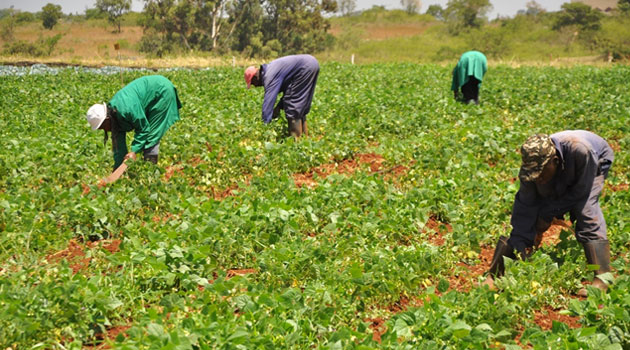As Ghana celebrates farmers across the country today, the Peasant Farmers Association of Ghana (PFAG) is calling for a review of the selection criteria in awarding the farmers.
The association is of the view that the selection process is skewed in favour of the minority large scale farmers—neglecting smallholder farmers, fisherfolk, the youth and women who constitute majority of farmers in the country.
“Our assessment of awardees over the last two decades founds farmers with large farm sizes as well as those with the capacity to invest in diversified agricultural commodities on a large scale emerging as overall award winners,” a statement issued by the PFAG said.
It added that even though the ceremony is replicated at the district level, the same criteria is used– producing the same winners over the years. “One woman winning the award over a 20-year period is incredibly worrying, and not reflective of the immense contribution of women in the development of agriculture and family food security in Ghana.”
This, the association contends is a mere five percent recognition at the national level. The association argued that reviewing the award criteria to allow for equal competition between all category of farmers including women and fisherfolk will boost the morale of the marginalized groups and bring about competition and improved productivity in the sector, particularly as some smallholder farmers post high level of productive efficiencies per productive factors.
“Historically, medium and smallholder farmers and fisherfolk constitute about 83 percent of the 11.3 million farmers in Ghana; but these categories of farmers have never won the overall national best farmer award.”
The association complained that the large-scale farmers with minimum farm size of not less than 100 acres who constitute about 17 percent of farmers are the recipients of all the overall national best awards. “The neglect of smallholder farmers and women in the agenda setting of the national farmers’ day celebration and the national best farmers selection process undermines their role as key stakeholders contributing to the agricultural development in the country.”
In its quest to create an equal opportunity for all farmers in the country, the association recommended some steps outlined below.
- The use of scale of production as a key metric in selecting the overall best farmer, suffers the same curse as economic productivity as used in economic parlance, which has since evolved to be more inclusive, accounting for very important socio-cultural dynamics such as factors undergirding access to land for women, environmental awareness, innovation, contribution to poverty reduction and crucially reducing the inequality gap. It is important that the metrics for selecting the overall best farmer reflect all these dimensions of productivity and socio-cultural narratives while making room for exploring issues such as good agronomic practices and environmental awareness – two areas which are cardinal to sustainable food production.
- Low productivity, postharvest losses, processing and marketing are cardinal issues still plaguing the sector. Low levels of literacy associated with low technology adoption among smallholder farmers is a major concern which keeps the output gap of smallholder farmers at high levels. An award system that allows all categories of farmers to showcase their yields per acre, application of appropriate technology, value addition, adoption of agribusiness either in small, medium and large size, strategies to reduce postharvest losses, environmental friendliness in farming and novelty is one that is in tune with time and will consolidate the credentials of not only the scheme, but the sector as a whole.
- The incentives to the overall winner should also be reviewed to focus on giving out agriculture-related machinery of interest to farmers that can be of use to other farmers in the community. Provision of warehouses, processing equipment and other related incentives will contribute to the development of both the farmer and the sector as a whole. Building a house for a farmer in the urban area as part of the award system suggest resettling such farmers to those areas, which can be counter-intuitive to the rationale for the award scheme.










